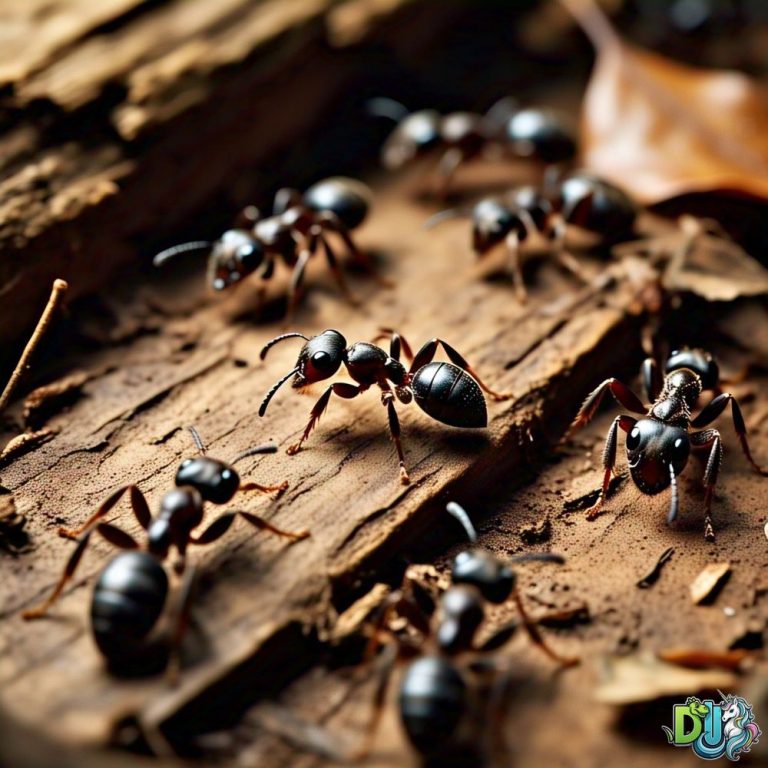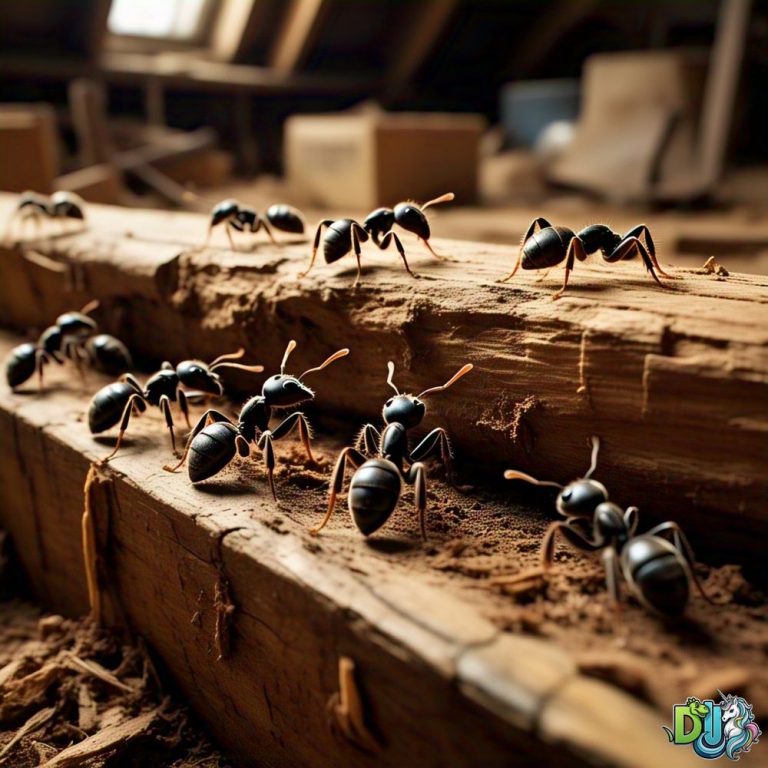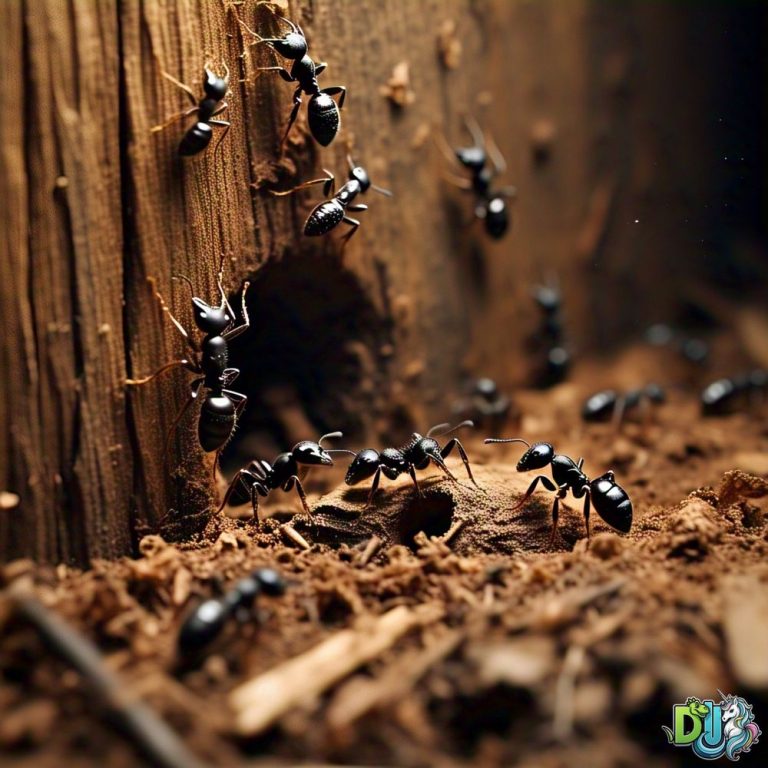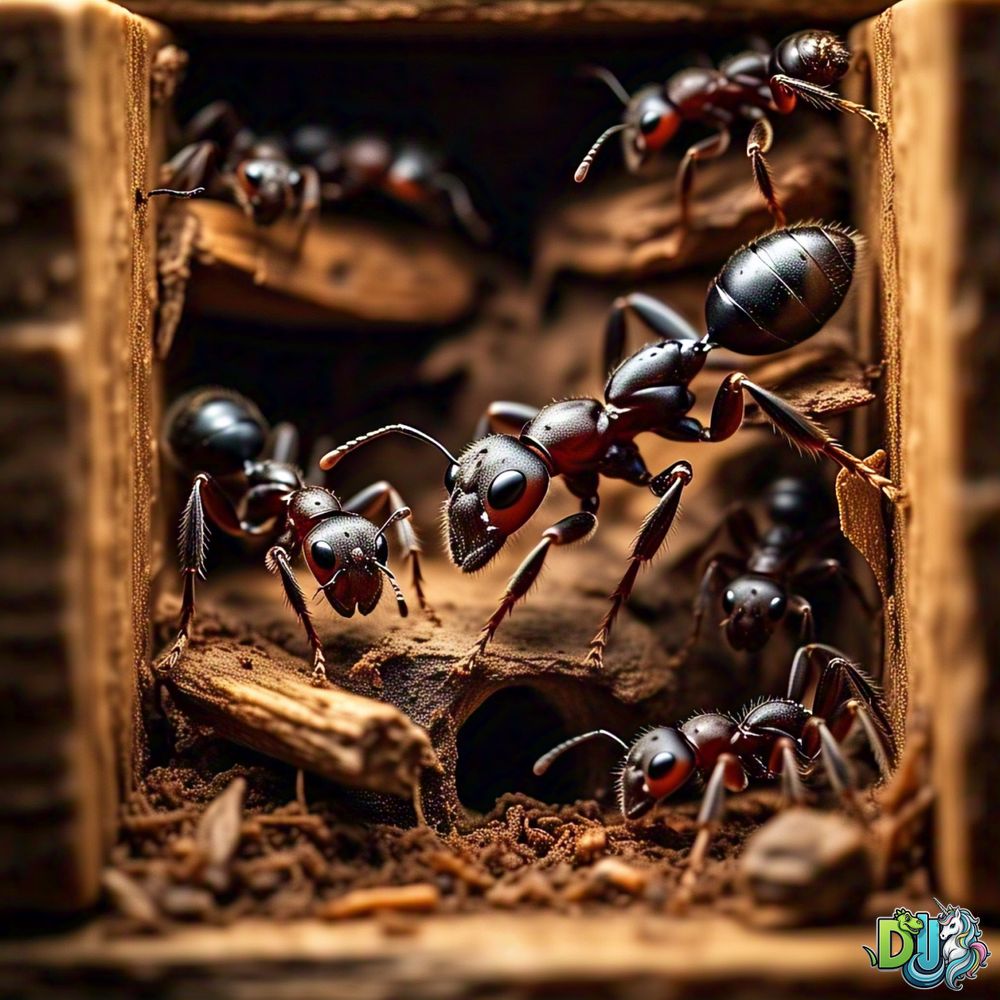Blog
How To Get Rid Of Carpenter Ants?
How To Get Rid Of Carpenter Ants?
Carpenter ants are a common household nuisance, often causing significant damage to wooden structures. Unlike termites, these ants don’t eat wood but carve intricate tunnels inside it to build their nests. If left untreated, carpenter ant infestations can weaken your home’s structure, leading to costly repairs. This comprehensive guide will help you understand how to get rid of carpenter ants using natural methods, DIY solutions, and professional treatments while ensuring long-term prevention.
Understanding the behavior, habitat, and control methods for these destructive pests is crucial for every homeowner. With the right approach, you can successfully manage carpenter ant infestations and protect your home from further damage.
What Are Carpenter Ants and Why Are They Dangerous?
Carpenter ants are one of the largest ant species, often identified by their black or red bodies. They prefer moist, decaying wood for nesting but can also invade sound wooden structures. Despite not consuming wood, their nesting habits can weaken structural integrity over time.
Carpenter Ant Infestation Signs
Identifying an infestation early can save your home from extensive damage. Look out for these signs:
- Wood Debris: Fine sawdust-like material near wooden surfaces, indicating tunneling activity.
- Ant Trails: Active movement of black or red ants, especially at night.
- Noises in Walls: Faint rustling sounds from inside wooden structures, a clear sign of nesting.
- Winged Ants: Swarming carpenter ants during mating seasons can indicate nearby colonies.
The sooner you detect these signs, the easier it will be to control the infestation.
Carpenter Ants vs Termites: How to Tell the Difference
It’s essential to distinguish between carpenter ants and termites:
- Appearance: Carpenter ants have bent antennae and segmented bodies, while termites have straight antennae and uniform body shapes.
- Nesting Habits: Carpenter ants hollow out wood but do not consume it, unlike termites.
- Damage Patterns: Carpenter ants leave smooth, clean galleries in wood, while termite tunnels appear rough and filled with mud.
Knowing these differences can help you choose the right treatment approach.

How to Get Rid of Carpenter Ants Naturally
For those seeking chemical-free solutions, natural remedies can effectively repel or kill carpenter ants.
Natural Ant Repellents
Using natural solutions can help repel carpenter ants effectively:
- Essential Oils: Peppermint and tea tree oils act as powerful repellents. Mix 10 drops with water and spray around entry points.
- Vinegar Sprays: Equal parts vinegar and water can disrupt ant trails.
- Diatomaceous Earth: Spread food-grade diatomaceous earth along cracks and entry points to dehydrate and kill ants.
Natural repellents are a safer choice for homes with pets or children.
Eco-Friendly Carpenter Ant Treatments
Eco-conscious homeowners can explore these alternatives:
- Boric Acid Solutions: Mix boric acid with sugar water and place near trails to attract and poison ants.
- Homemade Bait Traps: Combine peanut butter and borax for an effective bait.
- Citrus Peels: The natural citrus oil repels ants; place peels near nesting areas.
These treatments are effective for minor infestations and environmentally safe.

DIY Carpenter Ant Removal Methods
If you prefer a hands-on approach, several DIY methods can help eliminate carpenter ants.
How to Kill Carpenter Ant Colonies
To eliminate colonies, follow these steps:
- Locate the Nest: Listen for faint sounds or follow ant trails to their source.
- Use Bait Stations: Bait stations disrupt colony activity by allowing ants to carry poison back to the queen.
- Apply Safe Insecticides: Use non-toxic sprays or gels specifically designed for carpenter ants.
Carpenter Ant Bait Stations: What You Need to Know
Bait stations are a popular and effective solution:
- Selecting Bait Stations: Choose slow-acting poison baits for maximum effectiveness.
- Placement Tips: Place near trails, nest entry points, and high-traffic areas.
- Monitoring: Check bait stations regularly and replace them as needed.
Proper use of bait stations can significantly reduce carpenter ant populations.
When to Call Professional Pest Control for Carpenter Ants
While DIY methods can work, severe infestations require expert intervention:
- Severe Infestations: Extensive damage or multiple colonies may be beyond DIY solutions.
- Structural Damage Risks: Professionals can assess and repair damage caused by ants.
- Advantages of Experts: Pest control services provide comprehensive, long-lasting treatments.
Professional pest control may be the best option for large or persistent infestations.

How to Prevent Carpenter Ant Infestations
Prevention is key to avoiding future infestations.
Protecting Wood from Carpenter Ants
- Seal Cracks: Use caulk to seal gaps around windows, doors, and foundations.
- Remove Moisture Sources: Fix leaks and improve ventilation to reduce humidity.
- Maintain Proper Ventilation: Ensure attics, basements, and crawl spaces are well-ventilated.
Long-Term Solutions for Carpenter Ant Control
- Routine Inspections: Regularly inspect your property for signs of ant activity.
- Landscaping Adjustments: Trim tree branches and keep mulch away from the foundation.
- Pest Treatments: Schedule periodic pest control treatments to prevent infestations.
Frequently Asked Questions (FAQs)
Q1: How do I identify carpenter ants in my home?
A: Look for large black or red ants, sawdust-like debris near wood, rustling sounds in walls, and swarming ants during the mating season.
Q2: What natural methods can I use to repel carpenter ants?
A: Essential oils, vinegar sprays, and diatomaceous earth are effective natural repellents.
Q3: How do bait stations work for carpenter ants?
A: Bait stations lure ants with poison, which they carry back to the nest, effectively eliminating the colony.
Q4: When should I call a professional pest control service?
A: If you notice severe structural damage or multiple colonies, professional intervention is recommended.
Q5: What steps can I take to prevent future carpenter ant infestations?
A: Seal cracks, remove moisture sources, maintain ventilation, and schedule regular inspections.
By following this guide, you can effectively manage and prevent carpenter ant infestations, safeguarding your home from potential damage. Ensuring long-term control requires vigilance and routine maintenance.
Please visit Dinounicorn.com or Freshmilktee.com to support us. Thank you!
 Skip to content
Skip to content

